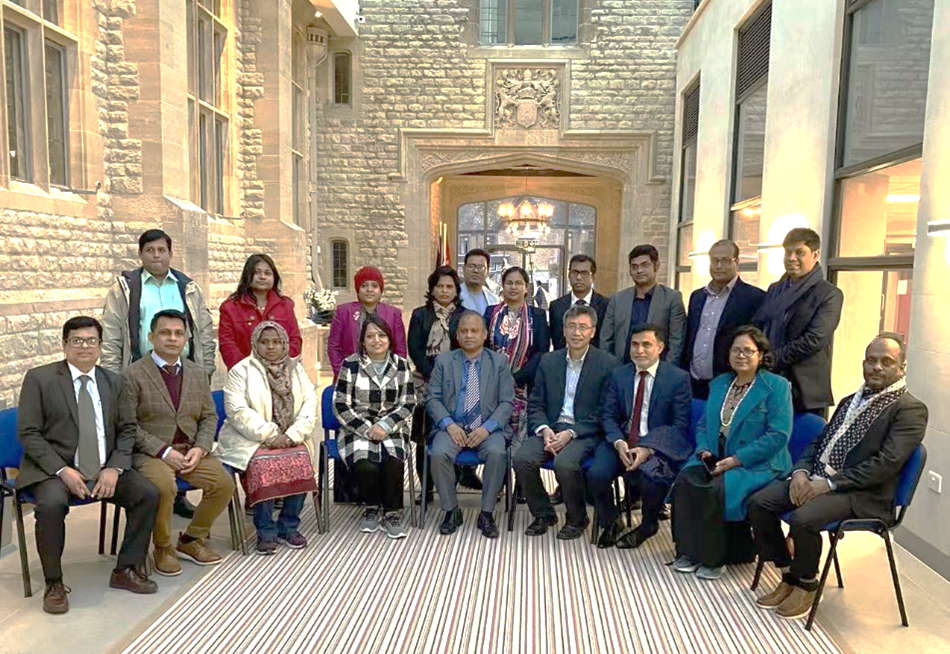On a sunny Friday autumnal afternoon of 11 November, the UK Campus of Peking University HSBC Business School (PHBS-UK) was visited by a delegation made up of 20 members from Bangladesh’s Ministry of Finance. The purpose of their visit was to have an academic discussion with the faculty of Peking University at the UK Campus about the impact of fiscal policy and public finances with respect to China and developing economies. Ranked 12th in the world [1] and 1st in Asia [2] by QS World University Rankings 2023, Peking University is renowned for its academic rigour and being forefront in its research, particularly in Asia. Thus it is a wonderful opportunity for both the faculty of Peking University at the UK Campus and the Bangladeshi delegation to learn from one another’s experience and expertise.
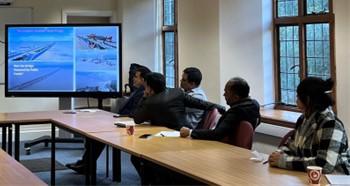
Upon their arrival, they were warmly welcomed by the Senior Tutor who took them on a tour around the UK Campus and the Senior Tutor explained to the delegation the founding of the UK Campus in Oxfordshire and how the UK Campus plays an important part in Peking University’s strategic commitment in internationalisation, particularly the key roles in Peking University’s mission and vision to strengthen its educational exchanges and collaborations with UK universities. After the Campus tour, the Bangladeshi delegation was invited to partake in a lovely halal lunch specially prepared for them by our in-house chef in the UK Campus’ dining hall.
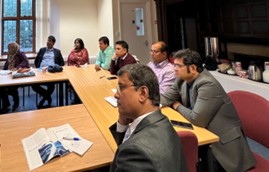
After lunch the Bangladeshi delegation was invited to an academic discussion with Professor Guy Liu, the Head of the UK Campus, who gave the delegation an introduction about how the US Fiscal Policy and the Chinese Fiscal Policy were established and how they influenced economic conditions, especially macroeconomic conditions in the US and in China respectively.
Before the discussion, Professor Liu provided a brief introduction how the US economy was largely influenced by its governmental policies during three crisis periods: the Second World War, the 2008 financial crisis, and the recent Covid-19 pandemic. To avoid a global economic downturn during the 2008 economic crisis, China introduced the 2008-9 Chinese economic stimulus plan - a RMB 4 trillion stimulus package aimed at minimising the impact of the 2008 economic crisis on the economy of China. The role of the government, either in the capitalist market economy of the US or in China’s socialist market economy, is decisive in influencing and changing economic conditions.
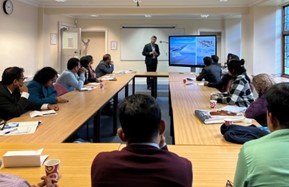
However, as cautioned by Professor Liu, the use of fiscal policy as an instrument to intervene the market is not without its price – the increase in national debt. Each time a government pumps a large amount of public funds to boost its economy, national debt increases dramatically. Both the US and China paid the price for their radical deployment of the fiscal policy in their respective economies. Professor Liu also introduced to the delegation China’s current fiscal system and its reforms which led to the academic discussion on China’s Local Government Financing Vehicles (LGFVs), which was of particular interest by the Bangladeshi delegation.
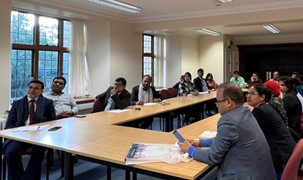
Professor Liu explained that in China, LGFVs are one of the major bond issuers and the net financing of LGFVs reached RMB 2.1 trillion in 2021, and it exceeded the total issuance of 2020. As LGFVs are mainly focused on public services like infrastructure and land development, they tend to be non-profit and heavily leveraged. However, they are able to obtain funding due to explicit or implicit government guarantees due to its nature as being a special type of government-related entity which might potentially be affected by extraordinary government intervention during an economic or financially stressful scenario. This discussion of LGFVs sparked a very lively discussion between the delegation and Professor Liu where many ideas were exchanged and many questions were asked.
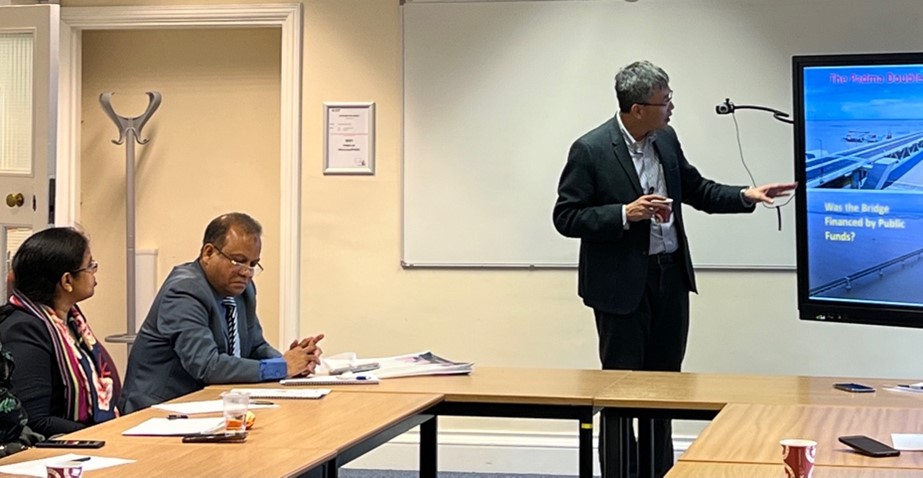
The visit and the discussion were particularly engaging and a wonderful learning opportunity for both our faculty and the Bangladeshi delegation as both sides were able to engage in a stimulating academic discussion and to be given the opportunity to learn from one another. At the end of their visit, the Bangladeshi delegation presented the UK Campus with a token of appreciation and leave the UK Campus with a beautiful memory of their visit. The faculty of the UK Campus really appreciated the visit by the Bangladesh Ministry of Finance and the wonderful opportunity to meet and learn from the 20 members of the delegation.






